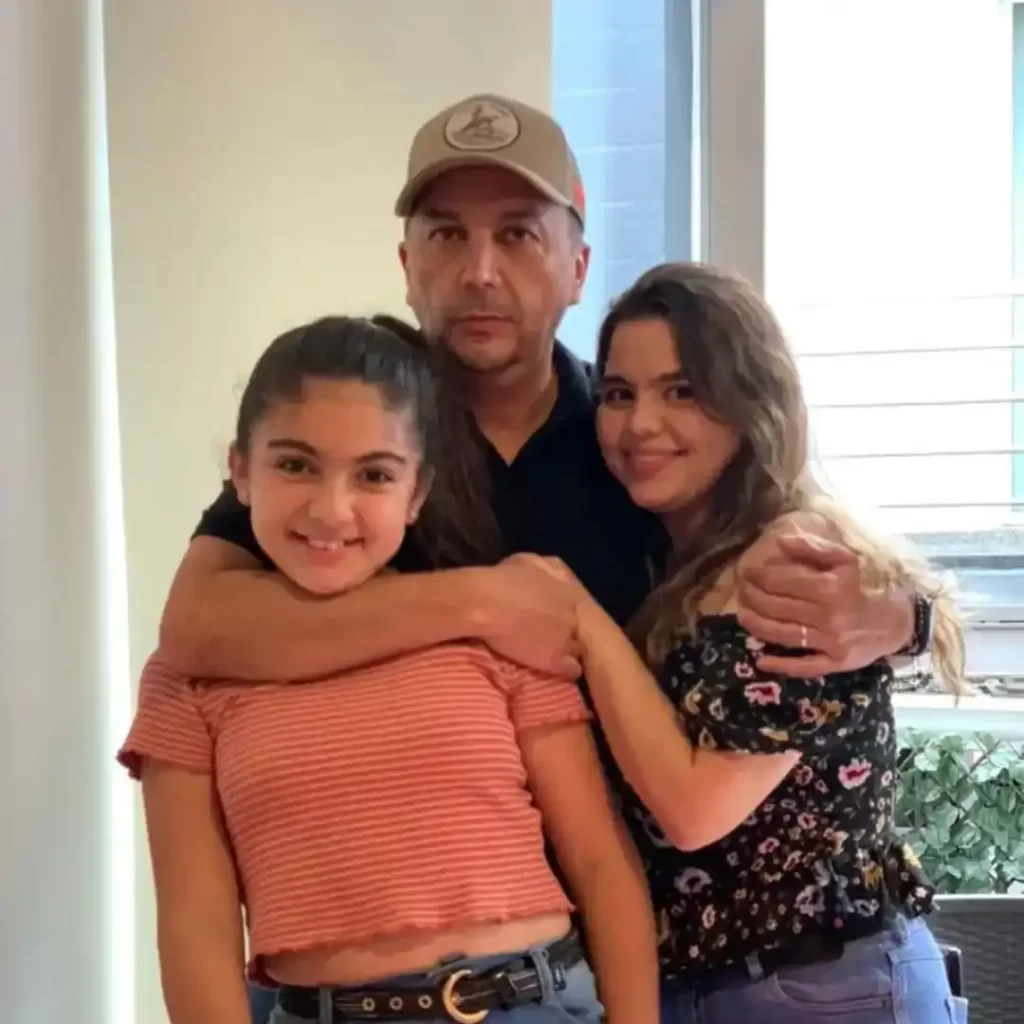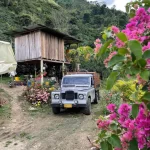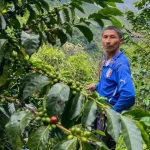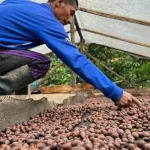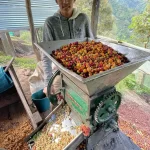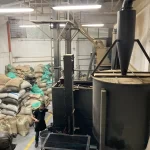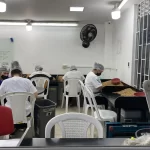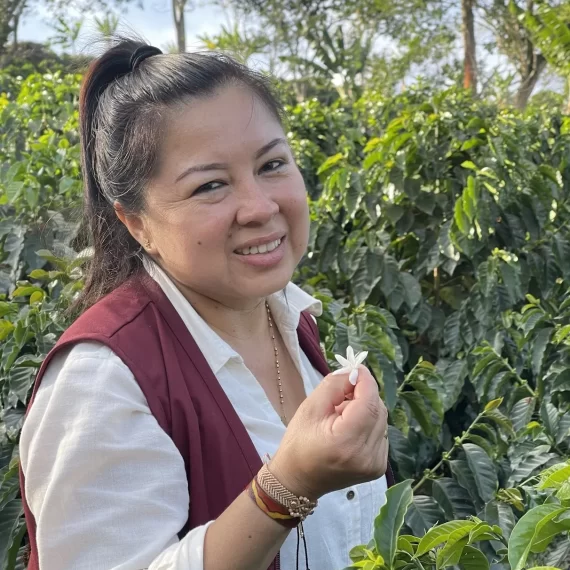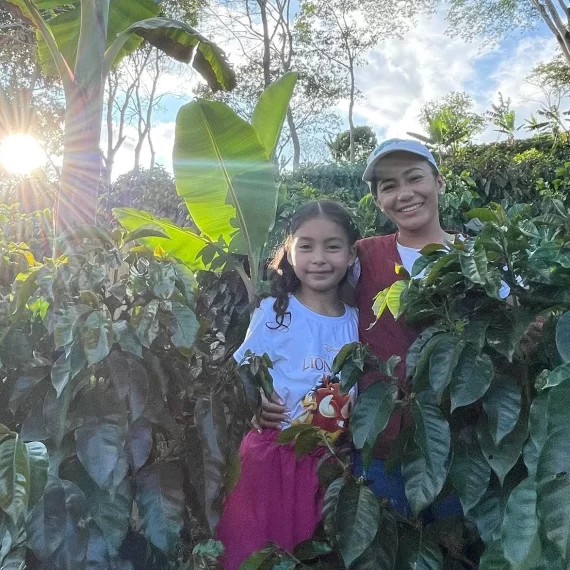
Incorporate Colombian coffee
In the heart of Colombia, in the Quindío department, lies Incorporate Colombian Coffee, a company born out of a deep passion for coffee passed down through generations. Founded by César Diaz’s father, Incorporate has continued to share this passion with his sons. Incorporate serves as a processing hub for multiple farms, connecting coffee growers from across the country. Every day, high-quality coffee cherries arrive at the center from our farms and various coffee producers throughout Colombia.
César Diaz: “We form these alliances because resources or knowledge are often lacking to elevate coffee to the next level. This is where Incorporate steps in, processing specialty coffee with care and dedication. Traceability and honesty are crucial in our partnerships. The beans are packed with pride, carrying the name of the producer and the Incorporate Colombian Coffee brand to the world.”
The mission of Incorporate is clear: to involve coffee growers in its project and bring high-quality Colombian coffee to the world, benefiting everyone. Ensuring fair prices and international recognition is a priority. In every cup of Incorporate Colombian coffee, you’ll find the story of a family, the passion of a coffee grower, and our commitment to quality. Incorporate connects passion, love, and flavors, carrying the legacy of Colombian coffee to every corner of the globe.
WHO DO WE WORK WITH
For our blends, we use coffee from these four farms in varying proportions depending on the current harvest. We also collaborate with other farms in different regions of Colombia.
La Cumbre – Julio Horta
A farmer who grows his coffee entirely under the shade of taller trees. Varieties: Castillo, Caturra, and Tabi. The farm is located in the Planadas – Tolima region at an altitude of 1,770 meters and spans 4 hectares.
San Pedro – Manuel Dagua
This farm is located in the San Pedro area at an altitude of 1,850 meters and spans 4.5 hectares. All production is organic, and they grow Bourbon Rosado, Caturro, and Geisha. The farm is part of the Nasa Wesh indigenous community in the Gaitania Tolima reserve.
Los Pedregales – Fernando Paya
A 27-year-old farmer who works on his farm with his mother and sister, relying solely on coffee production for their livelihood. Varieties: Castillo and Caturra. They belong to the Nasa Wesh indigenous community. The farm is located in the Gaitania Tolima region at an altitude of 1,780 meters and spans 7 hectares.
El Topacio – Uber Quintero
This farm is located in the Gaitania Tolima region at an altitude of 1,830 meters and spans 4 hectares. Uber Quintero is a second-generation producer growing Geisha, Wush Wush, Caturra, and Bourbon varieties.
We began working with these farmers through our friends in the Planadas and Gaitania regions. I visited the area years ago, and we built relationships with the locals and the Nasa Wesh indigenous community. The goal was to collect their cherries and bring them to the Incorporate Colombian Coffee headquarters in Armenia for processing, allowing us to better control the process and ensure larger, more consistent, and homogeneous quantities of these coffees used in our blends. By joining forces with our friends in this region, purchasing these coffees has become easier, enhancing the flavor profiles that characterize them.
About the coffee
The advantage of these farms lies in their optimal altitude and unique soil, which are ideal for coffee cultivation. This coffee is more intense, with a longer and fuller aftertaste. The flavor profile is often fruity and juicy. In terms of topography, these are mountainous farms with good shade, prioritizing environmental care and water resources.
The coffee undergoes short fermentation and washed processes in stainless steel tanks. The cherries are mechanically pulped, and drying takes place in the sun on African beds, with constant temperature monitoring.
First, the coffee is sorted (only ripe cherries are selected), then washed with water (floating and cleaning) and left to ferment in the cherries for 24 to 36 hours. Subsequently, it is washed twice, and the drying process begins under the sun using partial shade (partial covering).
All cherries are sorted and fermented for 48 to 72 hours in bags, which are turned every 7 hours to ensure the fermented juice covers all the coffee during the process. After completion, the coffee is washed twice, and the drying process under the sun begins.
Farmer Eider Perdomo Claro, along with his wife, manages the coffee cultivation processes together. They have a thirteen-year-old daughter and a seven-month-old baby. They have been working in agriculture for over 20 years (third generation). They grow varieties such as Wush Wush, Java, Sidra, Sudan Rume, Pink Bourbon, and Bourbon Aji.
We established cooperation this year because Eider participated in the Cup of Excellence competition in the past, which allowed us to taste his coffees.
The farm is located in the Filo de Chillurco – Pitalito area, Huila, at an altitude of 1,780 meters and spans 6 hectares.


